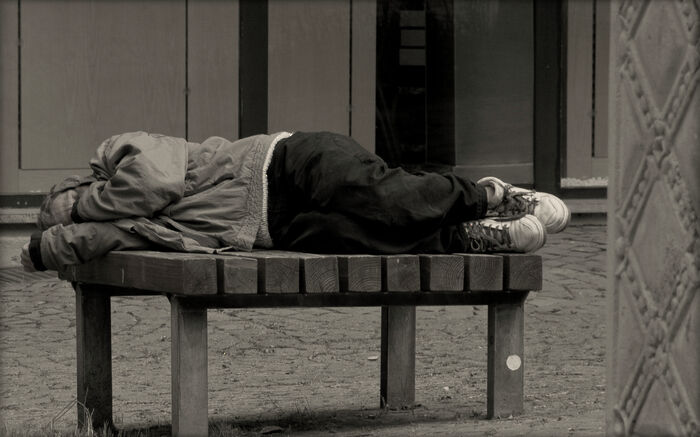‘Boom or bust’: the problems of overlapping homelessness outreach

With so many student-run organisations aiming to respond to the needs of Cambridge’s homeless community, inevitable questions arise over whether these end up stepping on each others’ toes – and if the distribution of their services is reaching its full potential.
Barry Griffiths, community, events and fundraising officer at Jimmy’s Night Shelter, is a point of reference for many students attempting to understand the labyrinth of support organisations and services operating in Cambridge. He notes a lack of coordination between student groups, who often operate on an ad hoc basis with rotating casts of volunteers. Speaking to Varsity, Griffiths warned that “efforts need to be coordinated to effectively manage street support”.
“The overlapping of voluntary services creates a micro economy of boom or bust,” he explained. “By this I mean where several groups, unknown to each other, venture out in the same night and not marshalled to avoid duplication, it leads to a feast or famine approach to support, which is suboptimal.”
One of the next projects from Jimmy’s will attempt to “join the dots” between student groups. Griffiths wants to hold a summit to help different organisations coordinate operations and “marry up the initial humanitarian effort – sustenance and clothing – and the encouragement to the individual to move from the streets [...] to a sustainable front door.” This entails a middle ground between the work of most student organisations, which focus on providing immediate relief, and the council’s long-term view.
Student organisations also see a noticeable drop-off in volunteers over the vacation period, as most return home. Griffiths emphasises the need for a more consistent homelessness support plan throughout the year, rather than an approach peaking in November and March. This was echoed by Cordelia Lam, director of a Wilberforce Society paper on provisions for the homeless in Cambridge. Lam believes that the recurring absence of the student population “is one aspect where the overlap does lend itself to supplementing” the work of other organisations, lacking the consistency to execute a stable year-round plan.
Lam also stresses the lack of mental health resources for Cambridge’s homeless community. She believes that so many organisations focus on immediate relief – with an emphasis on “shelter and food” – that provision of mental health services tends to be left behind. Moreover, charities like Streetbite and Foodcycle might end up duplicating services. Nevertheless, Lam maintains that verbal interactions between student volunteers and the homeless can be extremely valuable from a mental health standpoint, as many homeless people find themselves socially isolated. Mental health assessments are noticeably absent at homeless shelters; it may be better-resourced organisations, rather than student charities, that are best placed to address this.
Gaining more information about the relationships between charities was a challenge for the Wilberforce Society. Lam felt that few student charities made a concerted effort to operate alongside each other effectively – a problem stemming in part from a lack of information and communication to begin with. While many of the student-run organisations in Cambridge do admirable work, there is still a greater role to be filled in terms of making sure they supplement each other, thereby distributing support more evenly throughout the city and throughout the year.
 Comment / College rivalry should not become college snobbery30 January 2026
Comment / College rivalry should not become college snobbery30 January 2026 News / Downing Bar dodges college takeover31 January 2026
News / Downing Bar dodges college takeover31 January 2026 News / Cambridge for Palestine hosts sit-in at Sidgwick demanding divestment31 January 2026
News / Cambridge for Palestine hosts sit-in at Sidgwick demanding divestment31 January 2026 Science / Meet the Cambridge physicist who advocates for the humanities30 January 2026
Science / Meet the Cambridge physicist who advocates for the humanities30 January 2026 Lifestyle / Which Cambridge eatery are you?1 February 2026
Lifestyle / Which Cambridge eatery are you?1 February 2026










